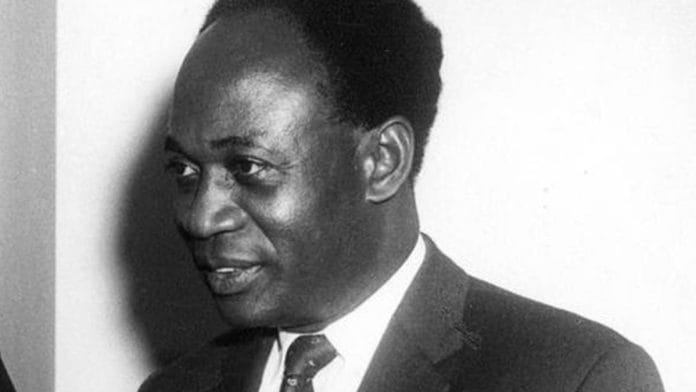New Delhi: Zohran Mamdani, 33, New York’s Democratic mayoral candidate, has an interesting middle name—Kwame—given by his parents, Indian filmmaker Mira Nair and Mumbai-born Ugandan post-colonial theorist and Columbia University professor Mahmood Mamdani.
Zohran was born in Uganda’s capital city Kampala in 1991 and spent his early years in Africa before migrating to the US at the age of seven. The name Kwame is of Ghanian origin and is an apparent nod to Ghana revolutionary Kwame Nkrumah—a towering anti-colonial leader, pan-African thinker, and first prime minister and president of independent Ghana who nonetheless left behind a controversial legacy.
Zohran’s father Mahmood has written extensively on African decolonisation and pan-African movements, exploring the legacy of colonialism and the complexities of post-colonial states.
Both Uganda and Ghana, formerly called the Gold Coast, were under British rule, with Kwame leading Ghana to independence in 1957. Uganda gained independence in 1962.
Kwame, as leader of the Convention People’s Party, spearheaded the freedom movement that made Ghana the first sub-Saharan African nation to break free from colonial rule. He led mass mobilisations and strikes against British colonial authorities, demanding self-government.
Post-independence, however, his government became authoritarian, and was accused of suppressing political opposition and conducting elections that were not seen as free or fair. In 1964, a constitutional amendment made Ghana a one-party state, with Kwame as president for life, of both the nation and the party.
In February 1966, he was overthrown in a military coup widely believed to have had support from western intelligence agencies.
President of Ghana, John Mahama, said at the country’s 68th independence day celebrations this year that the US Central Intelligence Agency (CIA) “inspired and engineered” the coup, citing declassified intelligence documents.
The interest in removing Kwame is believed to have been driven partly by his quest for a prosperous, unified Africa and his belief in a United States of Africa, which could become a non-aligned or pro-Soviet power bloc.
In Dark Days in Ghana (1968), Kwame stated his version of the coup against him: “An all-out offensive is being waged against the progressive, independent states of Africa… It has been one of the tasks of the C.I.A and other similar organisations to discover these potential quislings and traitors in our midst, and to encourage them, by bribery and the promise of political power, to destroy the constitutional government of their countries.”
When Ghana had got its independence, Kwame had declared that “the independence of Ghana would be meaningless unless it is tied to the liberation of the entire African continent”.
He also wrote a book titled Neo-Colonialism: The Last Stage of Imperialism in 1965, targeting colonialism and imperialism.
“Africa is a paradox which illustrates and highlights neo-colonialism. Her earth is rich, yet the products that come from above and below the soil continue to enrich, not Africans predominantly, but groups and individuals who operate to Africa’s impoverishment,” he notes.
Kwame enjoyed a cordial relationship with the first Prime Minister of India, Jawaharlal Nehru, with shared beliefs in the values of anti-imperialism, economic development and non-alignment.
Further, the Ghanian leader was a pivotal figure in the idea and foundation of the Non-Aligned Movement, along with Nehru (India), Gamal Abdel Nasser (Egypt), Josip Broz Tito (Yugoslavia) and Sukarno (Indonesia). The movement aimed to preserve the independence, sovereignty, and security of its member states in the face of Cold War tensions.
Interestingly, New Delhi’s Chanakyapuri has a side street called Kwame Nkrumah Marg, named after the late Ghanian president.
Also Read: New York, New Comrade. Mayor Mamdani and his India-style socialism
All eyes on Zohran Kwame Mamdani
Zohran last month emerged as the Democratic nominee for the office of New York mayor, following the party’s primary contest in which he beat fellow Democrat and former governor Andrew Cuomo. Zohran ran a grassroots campaign focused on small donors, affordability, especially of housing, racial justice, the rights of Palestinians and pro‑trans healthcare.
He currently represents New York’s 36th District, identifies as a Muslim and is a member of Democratic Socialists of America. He became a US citizen in 2018.
While US President Donald Trump termed Zohran a “100 percent communist lunatic” on social media, he is the favourite to win the mayor’s post in the November elections.
If he does so, he would be New York’s first Muslim and Indian-origin mayor, and its youngest in over a century.
Dedipya Agarwal is an intern who graduated from ThePrint School of Journalism
(Edited by Nida Fatima Siddiqui)
Also Read: Labelled ‘communist lunatic’ by Trump, New York mayoral candidate Zohran Mamdani is an outlier






